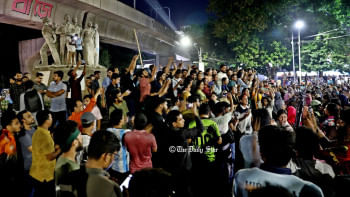CALL TO ACTION: YOUNGER GENERATIONS TO RE-IMAGINE SAARC

With increasing globalisation, younger generations are identifying more and more with being citizens of humanity. Although we still see a notion of kinship among South Asians, in a more interconnected and fast-paced world, it is often easy to forget the importance of regional cooperation and the integral role of bodies such as SAARC in our political history.
In general, it is too easy to leave cooperation up to our leaders, as a part of a diplomatic agenda alone. And it is about time that we use our interconnectedness and the ability for collaborative innovation to empower SAARC and transform our collective strength. We see it happening in the arts, with cross-pollination of media and music (from Coke Studio to Bollywood), but we need more of it in the socio-economic and political realms.
Natural disasters and tragedies remind us of the acute need for specifically greater logistical cooperation and coordination in light of proximity; in other words, there's a significant benefit of playing “nice” with thy neighbor, not only in a times of crises but before and after the event. There's an onus upon younger generations to not only hold our leaders accountable to the vision of a cooperative body over the long-haul, but participate in grassroots efforts to build peace and diplomacy to elevate this agenda in the minds of our leaders.
The recent earthquake in Nepal has generated much discussion around the benefits of pan-SAARC coordination and the replication of India's National Disaster Response Force at a regional level. In the immediate aftermath of the earthquake, Pakistani Prime Minister Nawaz Sharif and Indian Prime Minister Narendra Modi touched upon the need for SAARC exercises regarding disaster relief and rescue operations. And past advancement included the SAARC Comprehensive Framework on Disaster Management and a regional framework for Disaster Risk Reduction (DRR); however, as with international bodies and agreements, the devil is in the details. With a lack of strong structures of accountability, regional priorities and investments can fall to the wayside, until it is too late. Implementation is limited, and this is where a civil society push is critical. Beyond the settlement of land and resource disputes, we need to push for more collaborative planning with action behind it.
The confluence of natural disaster, poverty, political tension, and the status of women and children is a deadly one. It is our responsibility not to forget some sense of shared vision, history, and borders - and in some cases, shared blood. Further, there's something to be said about harnessing technology, the worldwide web, and the do-gooder trend among younger generations - as citizens of humanity - to inspire a dialogue of greater cooperation in the region.
As it relates to the recent earthquake in Nepal, there is significant strategic advantage to logistical ease and coordination, as we plan out our national futures. And it is our responsibility, especially the younger generations, to never forget this and hold our leaders accountable to regional cooperation. However, that accountability begins with our approach toward one another as neighbors, putting aside the past and using the tools of our future to create new history.
The writer is a Social Impact enthusiast and holds a Masters degree in Public Policy from Harvard's Kennedy School of Government.

 For all latest news, follow The Daily Star's Google News channel.
For all latest news, follow The Daily Star's Google News channel. 



Comments